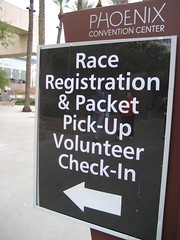Disclaimer: I am not a lawyer. I am a law student. In accordance with ABA policy, this blog should not be viewed as legal advice. It is simply my experiences, opinions, and stuff I looked up on the internet.

- Image by workshifting via Flickr
Never before has Bill Wilson’s advice, “Nothing pays off like restraint of pen and tongue” been more appropriate. In the past, we expressed how we felt mainly in-person or via phone calls. If something was important enough to write about, it took time to draft a letter or write an article. Now with email and social media sties, we can jump on our proverbial soapboxes whenever the feeling moves us and blast our opinion to the universe from anywhere.  More than ever, it is essential to think before we send an email, update our Facebook status, post a blog, or tweet – because it’s permanent!!!
I will never cease to be amazed by what people say in email or post online. A quick glance at my friends’ profiles revealed a smattering of pictures of people getting drunk and posts filled with hateful language. For the most part, these aren’t stupid people, but they have done stupid things – and documented it. It immediately reminded of what my Dad says: “You can’t coach dumb.â€
It seems lately that people need to be reminded that there is a permanent record of every single email they send. Even if you delete all of your “sent items,†they are still backed up on a server somewhere, and probably backed up on the receiver’s server too. Therefore, “if you are dealing with something that could come back to bite you later, pick up the phone, or better yet, go talk in person, but avoid email.â€Â Don’t leave a paper trail.
And don’t think that deleting your Facebook account will remove all the evidence of any past wrongdoings you posted.  Deleting your account, doesn’t actually delete it. It just makes it inaccessible to other users. It’s still in the database. What’s even more frightening is that I’ve heard a rumor that employers are hiring hackers to tell them what’s on job applicants’ Facebook and Myspace profiles. Don’t assume that changing your privacy settings will protect you.
Too many people treat email and social media sites like casual conversation, but worse because they ignore the fact that they are writing to and about real people. Â The fact that the sender doesn’t have to look the person in the eye seems to lower their inhibitions and remove the filter that ordinary blocks them from saying everything that they think. Â The result is abusive behavior and harassment.
Cyberstalking, cyberbullying, and/or cyberharassment are crimes in 41 of the 50 states.  In Arizona, cyberharassment is a Class 1 misdemeanor, punishable by up to six months in jail, and/or a $2500 fine. Often when the perpetrator is a minor the crime is cyberbullying. When the perpetrator is an adult, it’s cyberharassment. The behavior is the same, just different names. The courts have allowed lawsuits to be filed in criminal and civil court related to these acts.
Here’s my two cents when it comes to electronic communications: if you feel the need to vent when you’re upset about something, the way to do it without getting in trouble is to simply say how you feel about it. When I say, “I’m frustrated,†no one can say that that’s inappropriate or that it isn’t true. It’s a feeling, the fact of my mental state. You may have a different reaction, but neither person is wrong. It’s how we act on them that gets us into trouble.
So think whatever you want. Be careful about what you say.  But assume everything you say electronically, regardless of where you post it, is viewable by the general public and will follow you for the rest of your life. Don’t send anything via email or post anything online that you wouldn’t want your family, friends, co-workers, or employers to see.
Related articles by Zemanta
- Keep a Civil Cybertongue (online.wsj.com)
- How to prevent “Cyber-Stalking” (matei.org)
- Cyberbullying Is Not Free Speech, California Court Rules (huffingtonpost.com)
- More must be done to stop cyberbullies | Christina Meredith (guardian.co.uk)


![Reblog this post [with Zemanta]](http://img.zemanta.com/reblog_e.png?x-id=1618c6ac-c80e-4304-8a68-71b981ec1cfc)